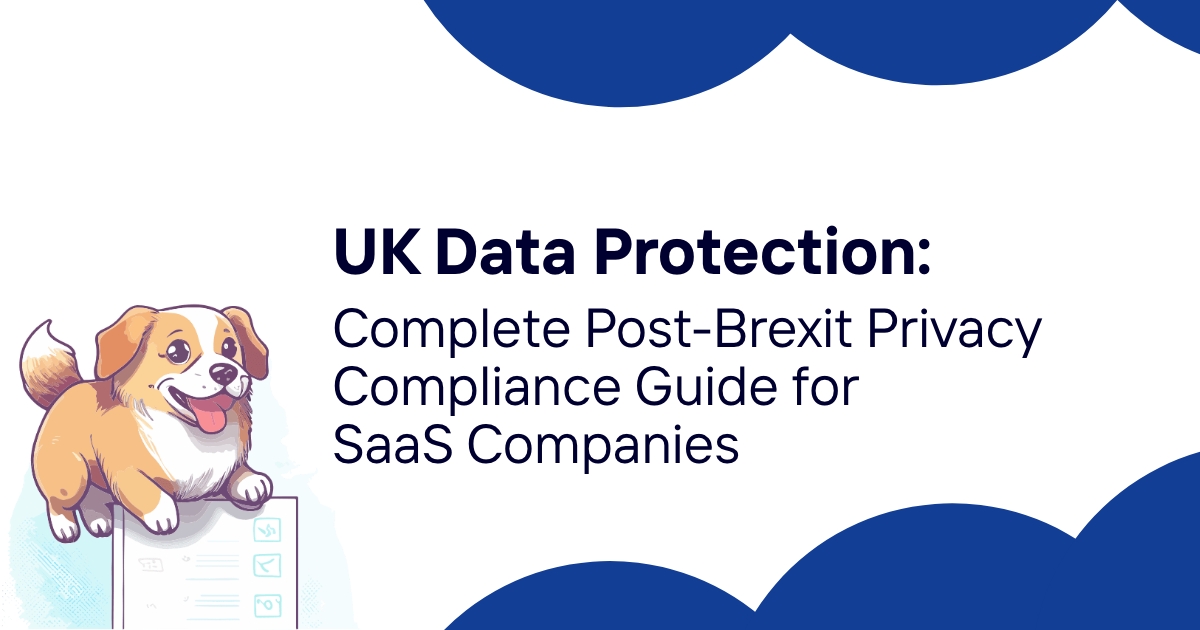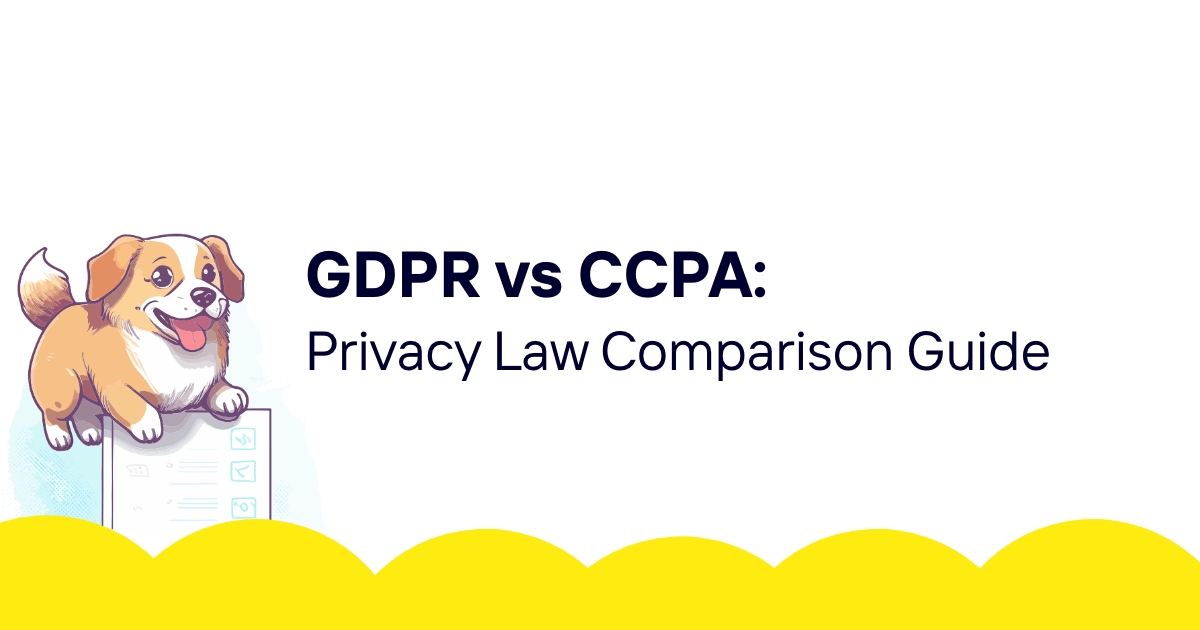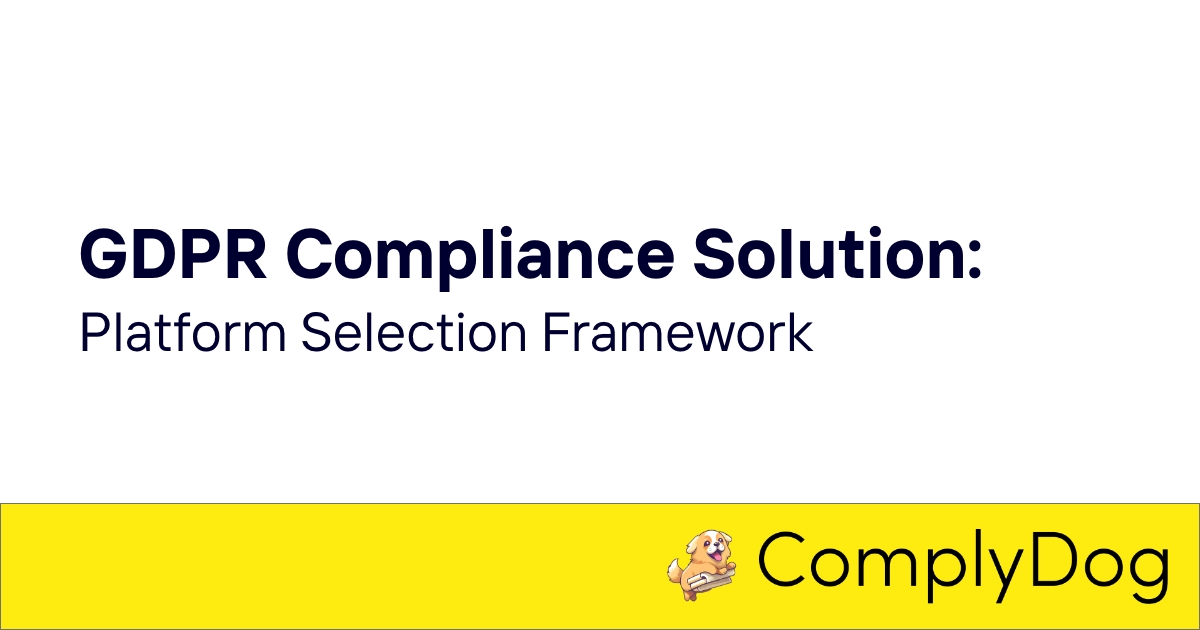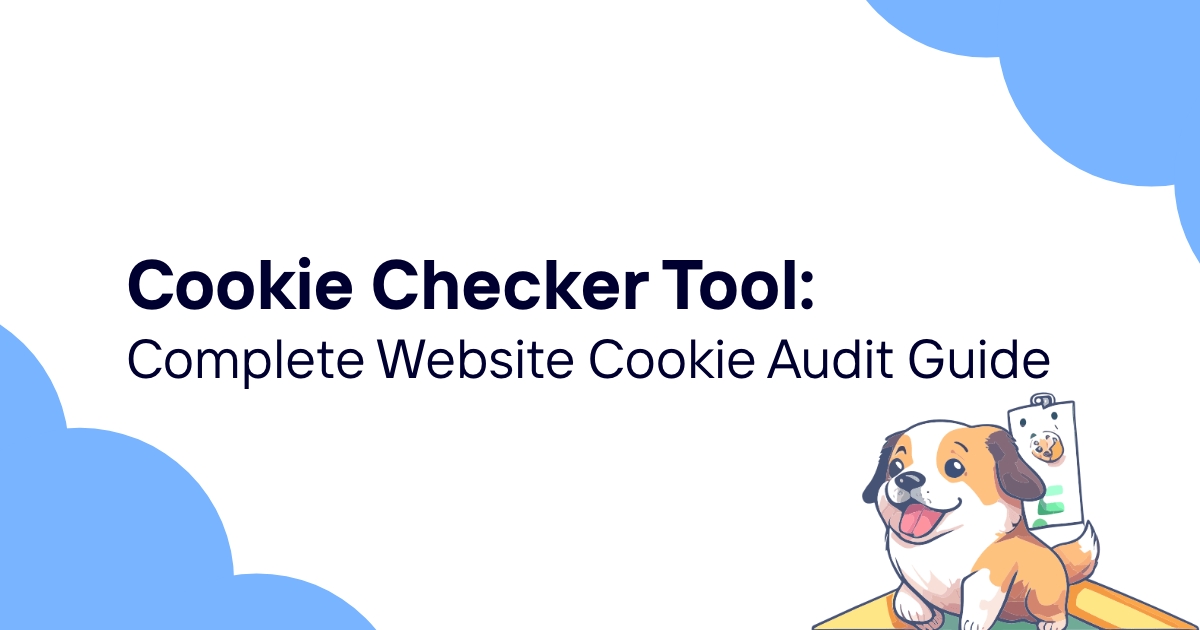Brexit fundamentally changed the UK data protection landscape for SaaS companies, creating a complex regulatory environment where UK and EU privacy laws operate in parallel but potentially divergent paths. What started as identical legal frameworks are slowly developing different interpretations, enforcement approaches, and technical requirements.
The immediate post-Brexit period maintained close alignment between UK GDPR and EU GDPR, but regulatory divergence is beginning to emerge through different guidance, enforcement priorities, and policy interpretations. SaaS companies serving both UK and EU markets must navigate these growing differences while maintaining efficient operations.
UK data protection compliance isn't just about following UK GDPR - it involves understanding how the Information Commissioner's Office (ICO) interprets privacy requirements, how UK courts apply data protection principles, and how Brexit affects international data transfers between the UK and other jurisdictions.
The most successful SaaS companies treat UK compliance as a distinct regulatory environment rather than a subset of EU privacy law. They build systems that can handle UK-specific requirements while maintaining compatibility with EU operations and preparing for further regulatory divergence.
ComplyDog helps SaaS companies navigate post-Brexit UK compliance by providing comprehensive compliance management that tracks UK-specific requirements alongside other international privacy frameworks.
UK Data Protection Landscape for SaaS Companies
The UK data protection framework combines retained EU GDPR provisions with new UK-specific elements that create unique compliance requirements for SaaS companies operating in or serving the UK market.
Core UK Data Protection Laws:
- UK GDPR - Retained EU GDPR provisions adapted for UK domestic application after Brexit
- Data Protection Act 2018 - UK legislation that supplements UK GDPR with national provisions
- Privacy and Electronic Communications Regulations (PECR) - UK rules for electronic marketing and cookies
- Investigatory Powers Act 2016 - UK surveillance law that affects data protection obligations
- Emerging legislation - Data Protection and Digital Information Bill proposing significant reforms
This multi-layered framework creates compliance obligations that go beyond simple GDPR implementation, particularly around electronic communications, national security, and emerging UK-specific privacy reforms.
ICO Regulatory Approach:
The Information Commissioner's Office has developed distinctly UK approaches to data protection enforcement and guidance that differ from EU regulators in emphasis and interpretation.
The ICO focuses heavily on practical compliance guidance, risk-based enforcement, and supporting business innovation while maintaining strong privacy protection. This approach creates opportunities for SaaS companies that proactively engage with ICO guidance.
UK Market Characteristics:
The UK SaaS market combines European privacy expectations with Anglo-American business practices, creating unique compliance challenges that require understanding both regulatory requirements and market expectations.
UK customers expect GDPR-level privacy protection but with pragmatic implementation that supports business efficiency. SaaS companies need compliance approaches that satisfy regulatory requirements while meeting UK market expectations for usability and business value.
Sectoral Regulations:
UK SaaS companies often operate in heavily regulated sectors including financial services, healthcare, education, and government that impose additional data protection requirements beyond general privacy law.
Consider sector-specific regulations like FCA guidance for financial services, NHS data protection requirements for healthcare, and government security classifications that affect SaaS compliance obligations.
For insights on managing complex regulatory environments, check out our PIPEDA compliance guide which addresses similar multi-framework compliance challenges.
UK GDPR vs EU GDPR: SaaS Implementation Differences
While UK GDPR started as a direct copy of EU GDPR, implementation differences are emerging through regulatory guidance, enforcement practices, and legislative updates that affect SaaS compliance strategies.
Regulatory Guidance Divergence:
The ICO has developed UK-specific guidance on data protection topics that increasingly differs from European Data Protection Board guidance, creating distinct compliance expectations for UK operations.
ICO guidance tends to be more practical and business-focused than some EU guidance, providing specific implementation advice that SaaS companies can use directly rather than requiring extensive legal interpretation.
Enforcement Priority Differences:
UK and EU data protection authorities have different enforcement priorities and approaches that affect how SaaS companies should focus their compliance efforts.
The ICO emphasizes risk-based compliance, innovation support, and practical privacy protection over strict procedural compliance. This approach rewards SaaS companies that demonstrate genuine privacy protection even if they don't follow every procedural requirement perfectly.
Technical Standards Evolution:
UK and EU technical standards for data protection are beginning to diverge through different certification schemes, adequacy assessments, and technology guidance that affect SaaS platform design.
Consider UK-specific technical guidance for areas like cookies, consent management, age verification, and automated decision-making that might differ from evolving EU approaches.
Data Protection Impact Assessment Approaches:
The ICO has developed specific DPIA guidance that emphasizes practical risk assessment and mitigation rather than comprehensive documentation requirements, affecting how SaaS companies approach high-risk processing.
Implement DPIA processes that satisfy ICO expectations for practical risk management while maintaining compatibility with EU DPIA requirements for companies operating in both jurisdictions.
UK-EU Data Transfers for SaaS Platforms
Brexit created new international transfer requirements between the UK and EU that affect SaaS platforms operating across both jurisdictions or serving customers in both markets.
UK Adequacy Decision Status:
The EU granted the UK an adequacy decision that allows personal data transfers from the EU to the UK without additional safeguards, but this decision is subject to review and potential withdrawal.
Monitor EU adequacy decision status and prepare alternative transfer mechanisms in case adequacy is withdrawn or modified. SaaS platforms should have contingency plans for standard contractual clauses or other transfer tools.
UK to EU Transfer Requirements:
The UK treats EU member states as adequate for data protection purposes, allowing transfers from the UK to the EU without additional safeguards under current arrangements.
However, this arrangement could change if UK data protection law diverges significantly from EU standards or if the EU withdraws UK adequacy, requiring preparation for alternative transfer mechanisms.
Third Country Transfer Coordination:
SaaS platforms often involve data transfers to third countries outside both the UK and EU, requiring coordination of UK and EU transfer requirements that might have different adequacy assessments or approved mechanisms.
Implement transfer mechanisms that satisfy both UK and EU requirements for third country transfers, considering that adequacy decisions and approved transfer tools might differ between the jurisdictions.
Cloud Infrastructure Considerations:
SaaS platforms using cloud infrastructure must consider both UK and EU data transfer requirements when personal data moves between different geographic regions or cloud availability zones.
Design cloud architecture that can handle both UK and EU transfer requirements while maintaining efficient operations and disaster recovery capabilities across multiple jurisdictions.
UK Data Protection Authority Guidance for Software
The ICO has developed specific guidance for software and technology companies that provides practical implementation advice for common SaaS compliance challenges.
ICO Software Development Guidance:
The ICO provides specific guidance for software developers on building privacy into products and services, including practical advice on data protection by design and by default implementation.
Use ICO guidance to inform SaaS platform design decisions around data collection, user controls, consent management, and privacy-preserving features that demonstrate proactive compliance.
Cookies and Similar Technologies:
The ICO has updated guidance on cookies and similar technologies that affects how SaaS platforms implement tracking, analytics, and personalization features while maintaining UK compliance.
Implement cookie compliance that follows ICO guidance on consent, legitimate interests, and strictly necessary cookies while maintaining SaaS platform functionality and user experience.
Automated Decision-Making Guidance:
The ICO provides specific guidance on automated decision-making and profiling that affects how SaaS platforms implement algorithms, machine learning, and AI features while protecting individual rights.
Design automated decision-making systems that follow ICO guidance on transparency, human oversight, and individual rights while supporting legitimate SaaS business purposes and innovation.
Children's Data Protection:
The ICO has developed detailed guidance on children's data protection that affects SaaS platforms serving users under 18, including age verification, parental consent, and child-appropriate privacy protection.
Implement age verification and parental consent systems that follow ICO guidance while supporting legitimate educational, entertainment, and communication services for young users.
UK-Specific SaaS Compliance Requirements
Several UK data protection requirements don't exist in EU law or have distinctly UK interpretations that require specific implementation attention for SaaS companies.
Data Protection Fee Requirements:
Most UK organizations must pay an annual data protection fee to the ICO, with different fee tiers based on organization size and processing activities. SaaS companies need to ensure appropriate fee payment and tier classification.
Register with the ICO and pay appropriate data protection fees based on your organization size and processing activities. Consider how SaaS business models affect fee calculations and ensure timely renewal.
UK Representative Obligations:
Non-UK SaaS companies offering services to UK customers might need to designate a UK representative under certain circumstances, creating additional compliance obligations and contact requirements.
Evaluate whether your SaaS operations require UK representative designation and implement appropriate representative arrangements if required for regulatory compliance and customer communication.
Sector-Specific Requirements:
UK SaaS platforms often serve regulated sectors that impose additional data protection requirements beyond general privacy law, including financial services, healthcare, education, and government requirements.
Research sector-specific data protection requirements that affect your SaaS customers and ensure your platform can support their compliance obligations through appropriate security, audit, and documentation features.
Law Enforcement and National Security:
UK law enforcement and national security arrangements create specific obligations for SaaS companies that might receive requests for data access or cooperation with security services.
Understand UK law enforcement data access procedures and prepare appropriate policies and procedures for handling government requests while protecting customer privacy and business interests.
Brexit Impact on SaaS Data Processing
Brexit created ongoing compliance challenges for SaaS companies that must navigate changing regulatory relationships, transfer requirements, and market access conditions.
Contractual Framework Updates:
Brexit required updating data processing agreements, vendor contracts, and customer agreements to address new UK-EU data transfer requirements and regulatory compliance obligations.
Audit and update contractual frameworks to ensure appropriate coverage of UK data protection requirements, transfer mechanisms, and regulatory compliance support for UK and EU operations.
Certification and Standards Recognition:
Brexit affects recognition of data protection certifications, standards, and adequacy assessments that SaaS companies use to demonstrate compliance and build customer trust.
Consider UK-specific certifications and standards that complement EU recognition while providing assurance to UK customers and regulators about data protection practices.
Regulatory Coordination Challenges:
SaaS companies operating in both UK and EU markets must coordinate compliance with potentially diverging regulatory requirements while maintaining efficient operations and consistent customer experience.
Develop compliance frameworks that can handle regulatory divergence between UK and EU requirements while maintaining unified privacy protection and operational efficiency.
Market Access Considerations:
Brexit affects how SaaS companies access UK and EU markets, including data transfer requirements, regulatory compliance, and commercial relationship management that affect business strategy.
Consider long-term market access strategies that account for potential further regulatory divergence while maintaining strong positions in both UK and EU SaaS markets.
UK SaaS Privacy Compliance Strategy
Building effective UK privacy compliance requires strategic approaches that address current requirements while preparing for regulatory evolution and market changes.
Compliance Architecture Design:
Design privacy compliance architectures that can handle UK-specific requirements while maintaining compatibility with EU and other international privacy frameworks through unified but flexible systems.
Implement privacy technologies and processes that provide UK compliance while supporting global SaaS operations and regulatory coordination across multiple jurisdictions.
ICO Engagement Strategy:
Develop proactive engagement strategies with the ICO that demonstrate compliance commitment while seeking guidance on complex issues and regulatory interpretation for SaaS-specific challenges.
Consider ICO consultation participation, guidance feedback, and regulatory sandbox opportunities that help shape UK data protection policy while demonstrating industry leadership.
Customer Communication Approaches:
Develop customer communication strategies that explain UK data protection compliance while building trust and confidence in privacy protection practices that support business growth.
Create transparent communication about UK privacy protection that differentiates your SaaS platform while supporting customer compliance obligations and privacy expectations.
Regulatory Change Monitoring:
Implement monitoring systems that track UK regulatory changes, ICO guidance updates, and policy developments that might affect SaaS compliance requirements and business operations.
Stay informed about proposed UK data protection reforms, emerging ICO guidance, and regulatory trends that affect SaaS business models and compliance strategies.
Ready to master UK data protection compliance? Use ComplyDog and build comprehensive privacy programs that satisfy UK requirements while supporting efficient SaaS operations and customer trust in the post-Brexit environment.


















